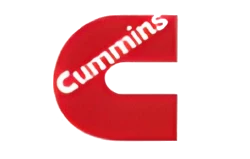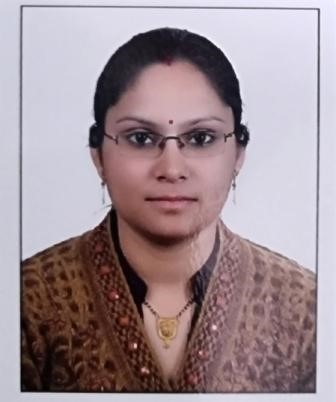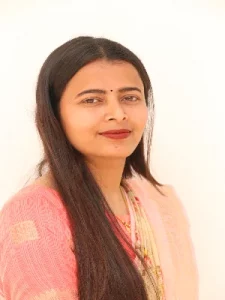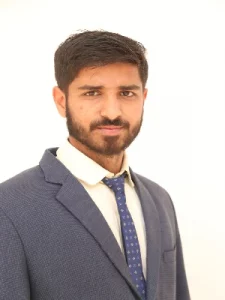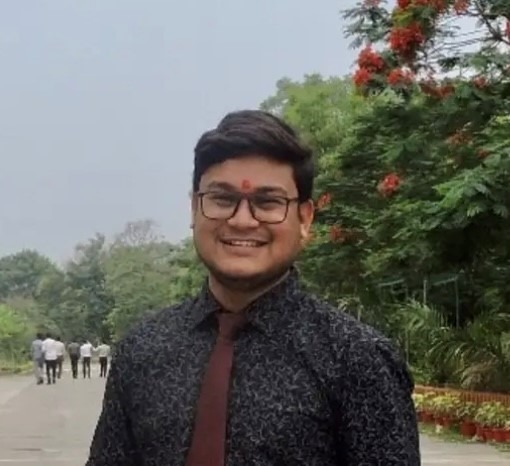Department of Civil Engineering
The Civil Engineering Department of Tula’s Institute came into existence in the year 2011. The department offers Diploma, Undergraduate, and Postgraduate programs in civil engineering. The Department of civil engineering offers specialization in the field of Energy Engineering in UG program. Civil engineers work to sustain the natural environment while creating and maintaining the built environment. Civil engineers are essential to provide the necessities of human beings like water, shelter, infrastructure and energy in more efficient and renewable ways. If one has the zeal to take a new challenge every day, civil engineering will be the right choice.
- The programs emphasize on industry and research based projects, which would enhance skills to become successful professionals.
- A team of qualified faculty members with ample teaching and industry experience is the highlight of the department of civil engineering.
- Industrial as well as Government site visits are organized as a common feature.
- Short Term Courses (STC) for student development, Value Added Courses/Add On Certifications/Short Term Courses (VAC) for all-round student development.
- Different software laboratories are functional such as Auto CADD, STAAD Pro etc for the holistic growth of our students.
- Curriculum comprise of both industry-led and practice-based courses.
- Alumni database of more than 300+ alumni currently working with MNC’s and Government organizations.
- Engineering Knowledge : Apply the knowledge of mathematics, science, engineering fundamentals, and an engineering specialization to the solution of complex engineering problems.
- Problem Analysis : Identify, formulate, research literature, and analyze complex engineering problems reaching substantiated conclusions using first principles of mathematics, natural sciences, and engineering sciences.
- Design/development of Solutions : Design solutions for complex engineering problems and design system components or processes that meet the specified needs with appropriate consideration for the public health and safety, and the cultural, societal, and environmental considerations.
- Conduct Investigations of Complex Problems : Use research-based knowledge and research methods including design of experiments, analysis and interpretation of data, and synthesis of the information to provide valid conclusions.
- Modern Tool usage : Create, select, and apply appropriate techniques, resources, and modern engineering and IT tools including prediction and modelling to complex engineering activities with an understanding of the limitations.
- The Engineer and Society : Apply reasoning informed by the contextual knowledge to assess societal, health, safety, legal and cultural issues and the consequent responsibilities relevant to the professional engineering practice.
- Environment and Sustainability : Understand the impact of the professional engineering solutions in societal and environmental contexts, and demonstrate the knowledge of, and need for sustainable development.
- Ethics: Apply ethical principles and commit to professional ethics and responsibilities and norms of the engineering practice.
- Individual and Team Work : Function effectively as an individual, and as a member or leader in diverse teams, and in multidisciplinary settings.
- Communication : Communicate effectively on complex engineering activities with the engineering community and with society at large, such as, being able to comprehend and write effective reports and design documentation, make effective presentations, and give and receive clear instructions.
- Project Management and Finance : Demonstrate knowledge and understanding of the engineering and management principles and apply these to one’s own work, as a member and leader in a team, to manage projects and in multidisciplinary environments.
- Life-long Learning : Recognize the need for, and have the preparation and ability to engage in independent and life-long learning in the broadest context of technological change.
- PSO1 : Understanding and providing innovative and ethical solutions to problems of natural
and built environment using fundamentals of applied science, structural, hydraulics,
geotechnical, transportation, environmental, water resources engineering, geomatics
and interdisciplinary areas.
- PSO2 : Able to design a system, component or process in civil engineering context with
focus on sustainable development meeting the requirements of the industry and
society.
- PSO3 :Up-gradation to latest skills, techniques and materials in the field of civil engineering and allied areas.
- PEO1 : Civil Engineering Professionals: The graduates will be equipped with the theoretical concepts of civil engineering subjects like structural, hydraulics, geotechnical, transportation, environmental, water resources engineering, geomatics and their application in planning, analysis, design and construction of infrastructure and development in associated fields of civil engineering.
- PEO2 : Entrepreneurship and Leadership: The graduates of Civil Engineering program will be proficient to formulate analyze and solve engineering problems to become employable engineers and capable entrepreneurs.
- PEO3 : Lifelong learning: To develop technical and communication skills required in the field of civil engineering and overall personality development of the students, inculcating leadership and teamwork abilities in the students so that they can effectively interact and work with the socio-culturally diverse societies across the globe.
- PEO4 : Social awareness and Ethics: Graduates will understand ethical and professional practice issues and demonstrate a commitment to professional social awareness and continuing education in technical and management institutes of repute nationally and globally.
DEPARTMENTAL VISION
- To be a leading centre for developing exceptional civil engineers who can create sustainable and
resilient infrastructure through innovative design, research, and ethical practices.
DEPARTMENTAL MISSION
- To equip aspiring civil engineers with a robust understanding of fundamental principles and cutting-edge technologies, empowering them to create, construct, and uphold sustainable infrastructure.
- To cultivate an environment of innovation and rigorous research, where civil engineers tackle real-world infrastructure challenges while championing environmental sustainability.
- To empower students with effective communication, collaboration, and leadership skills, enabling them to excel in a diverse and globalized engineering profession.
- To promote ethical conduct and social responsibility, inspiring graduates to contribute to the betterment of society through their work.
- To provide students with an environment conducive to lifelong learning and success in industry, research, higher education, and entrepreneurship, especially in socio-culturally diverse societies worldwide
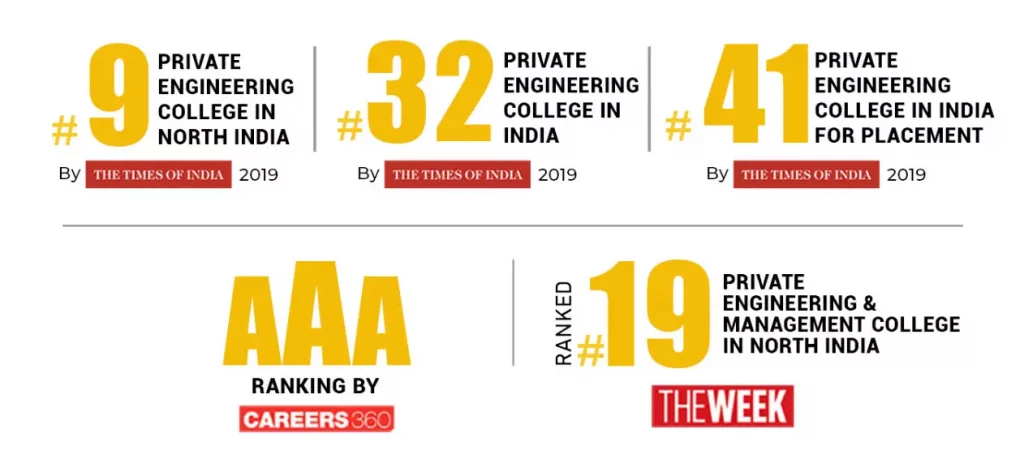
- ELIGIBILITY
- CURRICULUM
- FROM THE DESK of HOD
- SENIOR FACULTY
| S.NO | COURSE | DURATION | ELIGIBILITY |
|---|---|---|---|
| 1. | B.Tech | 4 years | Passed 10+2 examination with Physics and Mathematics as compulsory subjects along with one of the Chemistry/ Biotechnology/ Biology/ Technical Vocational subject/ Computer Science/ Information Technology/ Informatics Practices/Agriculture/ Engineering Graphics/ Business Studies. Obtained at least 45% marks (40% marks in case of candidates belonging to reserved category) in the above subjects taken together. OR Passed Diploma (in Engineering and Technology) examination with at least 45% marks (40% marks in case of candidates belonging to reserved category) subject to vacancies in the First Year, in case the vacancies at lateral entry are exhausted. |
| 2. | B.Tech (Lateral Entry/Second Year) | 3 Years | a. Passed Diploma examination with at least 45% marks (40% marks in case of candidates belonging to reserved category) in ANY branch of Engineering and Technology. b. Passed B.Sc. Degree from a recognized University as defined by UGC, with at least 45% marks (40% marks in case of candidates belonging to reserved category) and passed 10+2 examination with Mathematics as a subject. c. Provided that the students belonging to B.Sc. Stream, shall clear the subjects Engineering Graphics/ Engineering Drawing and Engineering Mechanics of the First Year Engineering Programme along with the Second year subjects. d. Provided that the students belonging to B.Sc. Stream shall be considered only after filling the supernumerary seats in this category with students belonging to the Diploma stream. e. Passed D.Voc. Stream in the same or allied sector. f. In the above cases, a suitable bridge Courses, if required such as in Mathematics may be conducted. |
B.Tech Civil Engg. I SEMESTER
SUBJECT CODE | SUBJECT |
BAST 101 | Engineering Chemistry |
BAST 102 | Mathematics-I |
BAST 103 | English for Communication |
BEET 101 | Basic Electrical & Electronics Engineering |
BCST 101 | Fundamentals of Computers & Programming in C |
PRACTICAL | |
BASP 101 | Engineering Chemistry lab |
BASP 103 | English for Communication lab |
BEEP 101 | Basic Electrical & Electronics Engineering lab |
BCSP 101 | Fundamentals of Computers & Programming in C |
BMEP 101 | Manufacturing Practices/Workshop |
BASP 102 | Internship-I |
BASP 105 | Swachh Bharat Summer Internship |
II SEMESTER
SUBJECT CODE | SUBJECT | ||
BAST 104 | Engineering Physics | ||
BAST 102 | Mathematics-I | ||
BMET 102 | Basic Mechanical Engineering | ||
BCET 101 | Basic Civil Engineering & Mechanics | ||
BEST 101 | Environmental Studies | ||
PRACTICAL | |||
BASP 104 | Engineering Physics | ||
BMEP 102 | Basic Mechanical Engineering | ||
BCEP 101 | Basic Civil Engineering & Mechanics | ||
BMEP 103 | Engineering Graphics | ||
BASP 106 | Language lab & Seminars | ||
BASP 102 | Internship-I | ||
B.Tech Civil Engg. IIIrd Sem. | |||
Course Code | Name of Course | ||
BAST 301 | Mathematics-III | ||
BCET 302 | Construction Materials | ||
BCET-303 | Surveying | ||
BCET-304 | Building Planning and Architecture | ||
BCET-305 | Strength of Material | ||
Labs. | |||
BCEP 303 | Surveying Lab. | ||
BCEP 304 | Building Planning & Architecture Lab. | ||
BCEP 305 | Strength of Materials | ||
BCEP 306 | Study of Historical & Ancient Civil Engineering Practices | ||
BASP 107 | Evaluation of Internship – I – completed at I year level | ||
BASP 307 | 90 hrs Internship based on using various softwares –Internship-II* | ||
B.tech Civil Engg. IVth Sem. | |||
Course Code | Name of Course | ||
BCET 401 | Energy & Environmental Engg | ||
BCET 402 | Concrete Technology | ||
BCET 403 | Structural Analysis-I | ||
BCET 404 | Transportation Engg.-I | ||
BCET 405 | Engg Geology & RemoteSensing | ||
BHUT 401 | Universal Human Values | ||
Labs. | |||
BCEP 402 | Concrete Technology lab | ||
BCEP 403 | Structural Analysis-I lab | ||
BCEP 404 | Transportation Engg.-I lab | ||
BCEP 405 | Engg Geology & Remote lab | ||
BCEP 406 | Software Lab | ||
BCEP 407 | 90 hrs Internship based on using various software’s – Internship | ||
B.tech Civil Engg. Vth Sem. | |||
Course Code | Name of Course | ||
BCET 501 | Design of RC Elements | ||
BCET 502 | Geotechnical Engineering I | ||
BCET 503 | Fluid Mechanics | ||
BCET 504 (A/B/C/D) | Departmental Electives | ||
BOEC 505 (A/B/C/D) | Open Electives | ||
Labs. | |||
BCEP 501 | Design of RC Elements | ||
BCEP 502 | Geotechnical Engineering I | ||
BCEP 503 | Fluid Mechanics | ||
BCEP 506 | Material Testing Lab | ||
BCEP 507 | Evaluation of Internship-II completed at II year level | ||
Internship -III | To be completed any time during Fifth/ Sixth semester. Its evaluation/credit to be added in Seventh semester | ||
DEPARTMENTAL ELECTIVES | |||
BCET 504(A) | Structural Analysis II | ||
BCET 504(B) | Quantity Surveying and Costing | ||
BCET 504(C) | Environmental Impact Assessment | ||
BCET 504(D) | Disaster Preparedness and Planning | ||
OPEN ELECTIVES | |||
BOEC 505 (A) | Renewable Energy Resources | ||
BOEC 505 (B) | Transportation Engineering II | ||
BOEC 505 (C) | Operations Research | ||
BOEC 505 (D) | Subject from SWAYAM | ||
B.tech Civil Engg. VIth Sem. | |
Course Code | Name of Course |
BCET 601 | Design of RC Structures |
BCET 602 | Environmental Engineering I |
BCET 603 | Open Channel Flow |
BCET 604 (A/B/C/D) | Departmental Electives |
BOEC 605 (A/B/C/D) | Open Electives |
Labs. | |
BCEP 601 | Design of RC Structures |
BCEP 602 | Environmental Engineering I |
BCEP 603 | Open Channel Flow |
BCEP 606 | OE Lab/ Advance Surveying Lab |
BCEP 507 | Minor Project I |
Internship –III | During semester 5/6 |
DEPARTMENTAL ELECTIVES | |
BCET 604(A) | Geotechnical Engineering II |
BCET 604(B) | Precast and Modular Construction |
BCET 604© | Cost Effective and Eco Friendly Structures |
BCET 604(D) | Urban and Town Planning |
OPEN ELECTIVES | |
BOEC 605 (A) | Principles of Management |
BOEC 605 (B) | Environmental Management & Sustainable Development |
BOEC 605 (C) | Advance Pavement Design |
BOEC 605 (D) | Subject from SWAYAM |
B.Tech Civil Engg. VIIth Sem. | |
Course Code | Name of Course |
BCET 701 | Environmental Engineering II |
BCET 702 | Design of Steel Structures |
BCET 703 (A/B/C) | Departmental Elective |
BOEC 704 (A/B/C) | Open Elective |
Labs. | |
BCEP701 | Environmental Engineering II |
BCEP702 | Design of Steel Structures |
BCEP 705 | Departmental Lab |
BCEP 706 | Evaluation of Internship-III completed at III year level |
BCEP 707 | Minor Project II |
DEPARTMENTAL ELECTIVES | |
BCET 703(A) | Railway& Airport Engineering |
BCET 703(B) | Bridge Engineering |
BCET 703(C) | Ground Water Engineering |
OPEN ELECTIVES | |
BOEC 704 (A) | Hydrology |
BOEC 704 (B) | Infrastructure Planning and Management |
BOEC 704 (C) | Subject from SWAYAM |
B.Tech Civil Engg. VIIIth Sem. | |
Course Code | Name of Course |
BCET 801 | Construction Planning and Management |
BCET 802 | Seismology and Earthquake Resistance Design of Buildings |
BCET 803 (A/B/C) | Departmental Elective |
BOEC 804 (A/B/C) | Open Elective |
Labs. | |
BCEP 805 | Major Project |
BCEP 806 | Seminar |
GP | General Proficiency |
DEPARTMENTAL ELECTIVES | |
BCET 803(A) | Irrigation Engineering |
BCET 803(B) | River Engineering |
BCET 803(C) | Repair & Rehabilitation of Structures |
OPEN ELECTIVES | |
BOEC 804 (A) | Hydropower Engineering |
BOEC 804 (B) | Prestressed Concrete |
BOEC 804 (C) | Subject using SWAYAM |
 | Dr. Arun Agarwal Email id: [email protected] |
I would like to welcome you at Tula’s Civil Engineering Department where students are encouraged to engage in extra-curricular and co-curricular activities which are essential for their personality development as well as development of organizational skills. Our faculty members are dedicated, highly qualified with vast industry experience in diverse fields of civil engineering. Our main objective is to nurture our students to make them industry-ready in the field of construction & designing so as to serve the nation.
- Prominent Faculty Members
There is an opportunity for Civil Engineers to get a job in government, public & private sectors. Some job titles are listed here:
- Civil Engineer
- Building control surveyor
- Design Engineer
- Quality control Engineer
- Maintenance & Service Engineer
- Assistant Engineers & Junior Engineers in state & Central government organizations
- Society of Civil Engineering
- VIBGYOR
- VICTREE
- The infrastructure sector has become the biggest focus area for the Government of India.
- The Govt. is providing special allocations in budget to complement infrastructure growth and housing for all schemes which in turn generates employment for the civil engineers. Also, India and Japan have joined hands for infrastructure development in India’s Northeast states to undertake strategic infrastructure projects for the region.
- It is the oldest branch of engineering & serves as the base of engineering.
Apart from the regular curriculum as specified by the university, we also conducts various workshops/ seminar/ Short term courses/ Expert Talks as add on certifications to the students. These activities enhance the learning skills of the students and make them ready for the industry. We also conduct various industrial trips time to time for making students aware of the recent trends and advancements in the industries.
Civil engineers create and implement solutions to a wide range of challenges, increasing efficiency in a variety of sectors. You may expect outstanding employment opportunities, high income, and a variety of work areas if you major in civil engineering. Civil engineering abilities are transferrable, which means they will be valuable in a range of sectors and can help to gain additional employment opportunities. A civil engineering degree will equip you with a variety of abilities, including:
- Problem-solving – engineering is all about discovering better, more efficient methods to do things.
- Team building– working in groups allows you to share expertise and build faster, more reliable solutions.
- Research and Innovation: The students of the department are encouraged to participate in the research activities. They are also encouraged to be an entrepreneur by providing them all necessary support to build their startups.
Recent Activities





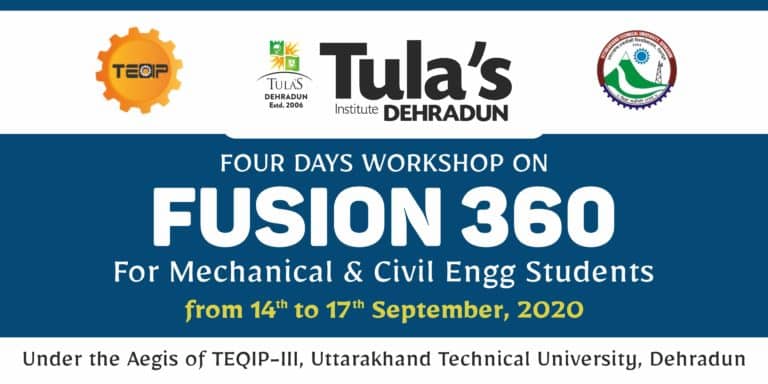
TOP RECRUITERS











